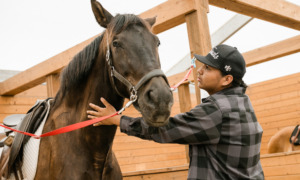While working as a consultant many years ago, I was moved by the words of a pregnant young woman in foster care. Worried about the prospect of becoming a parent, she asked me how she could be a good mother when she herself had never had one. Her greatest fear was losing custody of her baby, just as her mother had lost her.
She wanted to know who would help her become a good mother.
Unfortunately neither I nor the child welfare professionals in the room had any answer for her.
Only recently have statistics shown the disproportionate rate of unplanned pregnancies among young women in care, compared with those not in care. According to the National Campaign to Prevent Teen and Unplanned Pregnancy, 32 percent of young women in care report having at least one child by the age of 19, compared with 12 percent of their peers who are not in care. The Joint Center of Political and Economic Studies recently found that the pregnancy rate among African-American female youth in foster care is three times that of their white counterparts in foster care.
Pregnant and parenting young adults and their children are a vulnerable and invisible group within the already high-risk population of children and youth in foster care. To date, the child welfare field has not focused on this population in any systematic way.
Why are these young women invisible?
For the most part, the child welfare field has viewed pregnancy of youth in care as a problem requiring intervention, yet another issue tacked on to the existing list. The system has not viewed parenthood as an opportunity to break the cycles of system involvement by increasing the strengths, skills and self-sufficiency of mother and child, thus increasing their chances for successful transition to an independent, permanent and healthy life together. For the most part, little attention has been paid to creating long-term models of service and practice specifically designed to meet the needs of parenting young women who are in care and who transition out of care with children.
Also, some data indicate that the middle-class values held by those in the child welfare field may explain partially the lack of services and programs specifically designed to keep mother and child together. According to a 2002 report by the Research Initiatives for Social Change at the University of Victoria, “One of the most significant ramifications of workers’ middle-class values and norms was their belief about the inevitability of ‘the cycle’ (of children in care begetting children who were destined to come into care – i.e. of ‘parenting failures’).” (“Undeserving” Mothers? Practitioners’ Experiences Working with Young Mothers In/From Care.)
So, what can be done?
We in the field can start by putting away our judgments about young women in foster care who become pregnant, and try instead to understand the powerful forces behind their search for belonging, love and permanence. A 2006 report by the National Campaign to Prevent Teen and Unplanned Pregnancy notes: “Many foster youth see great benefits in having a child at an early age. Foster teens told us repeatedly that they wanted someone to love, a family of their own, and someone who would always be with them. For some, having a baby is seen as an opportunity to prove they can be better parents than their parents were to them.” (Fostering Hope: Preventing Teen Pregnancy among Youth in Foster Care.)
We can also learn more. For example, the University of Maryland School of Social Work is conducting a two-year project, funded by the Maryland Department of Human Resources, designed to strengthen the research base about childbearing among Maryland’s foster youth and to develop best practice protocols.
Child welfare professionals are in the business of keeping families together. This fact must apply to all families, even young women who are in foster care and pregnant or parenting. It’s time for all of us to wake up and focus on this population. Services and programs that support the development of mother-baby bonding, parenting skills and support systems must be developed to increase the chance of success and to break intergenerational cycles of system involvement.
We have a responsibility to support foster youth and foster youth alumni who have become parents, and who are working to do a better job than their parents did.
Jeannette Pai-Espinosa is president of The National Crittenton Foundation, which recently released Rights and Resources: A Guide to the Custody and Placement Rights of Young Mothers in Foster Care. Contact: Jeannette@TheNationalCrittentonFoundation.org.


























